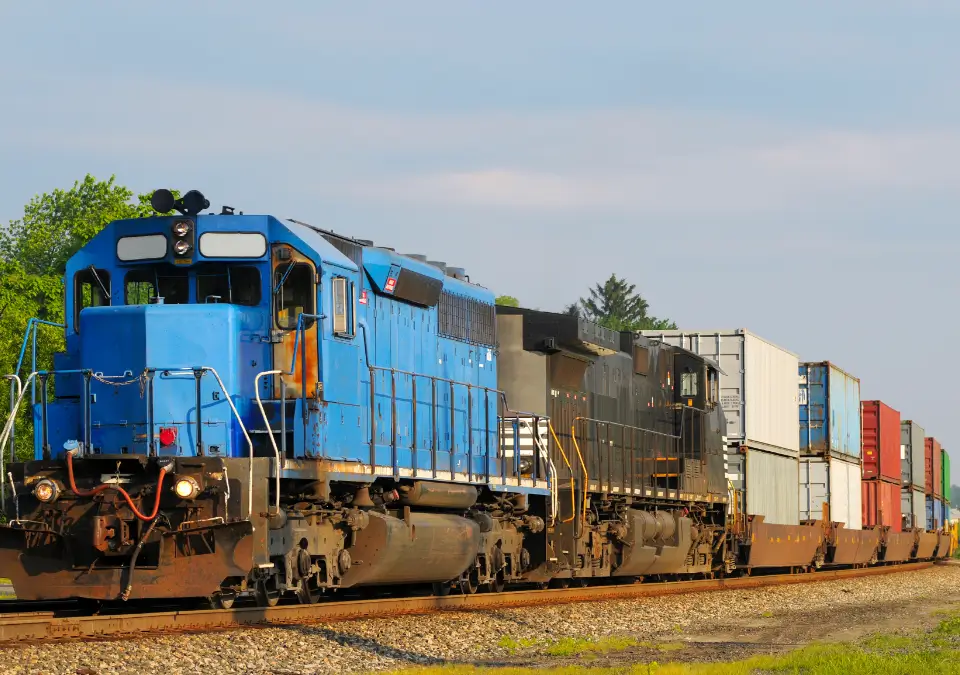

Reno Logistics, Inc. offers reliable door-to-door rail intermodal service that extends into Canada and Mexico, complete with dynamic status reports on every shipment. Landstar has contracts with the major North American railroads and stack train operators.
Plus, all rail intermodal services are complimented by Landstar’s vast network of intermodal dray carriers and the wide array of equipment available through third-party capacity providers:
Landstar’s certified rail intermodal professionals are ready work with you to determine your specific requirements and manage your shipment from dispatch to delivery.
What is rail intermodal?
Rail intermodal transportation is a logistics system that integrates the use of rail and other modes of transportation, such as trucking or shipping, to move cargo in standardized containers or trailers. It involves the seamless transfer of freight containers between different modes of transport without the need to unload and reload the cargo. Here's how it typically works:
Rail intermodal transportation offers several advantages:
Cost-Effectiveness: It is often more cost-effective for long-distance transport compared to using trucks alone, especially for high-volume cargo.
Reduced Emissions: Rail transport emits fewer pollutants than road transport, making it a more environmentally friendly option.
Efficient Use of Space: Intermodal transport optimizes the use of transportation modes ad reduces the handling of goods, minimizing the risk of damage.
Versatility: It accommodates a wide range of cargo types, from consumer goods to bulk commodities and industrial equipment.
Rail intermodal is a key component of global supply chains, offering a balance between cost efficiency and reliable transportation for goods across different regions and countries. It serves as an essential mode for moving goods over long distances efficiently.
Fill out the form to let us know how we can help keep your business moving.
As an independent Landstar agent, Reno Logistics, Inc. has the flexibility and freedom to provide custom solutions for even the most unique challenges.
Our livelihood depends on earning and keeping our customers. We have a vested interest in your satisfaction and have the backing of the entire Landstar network to make that happen.
We are independent, but not alone. Landstar agents have the backing and support of specialized departments from compliance to finance.
